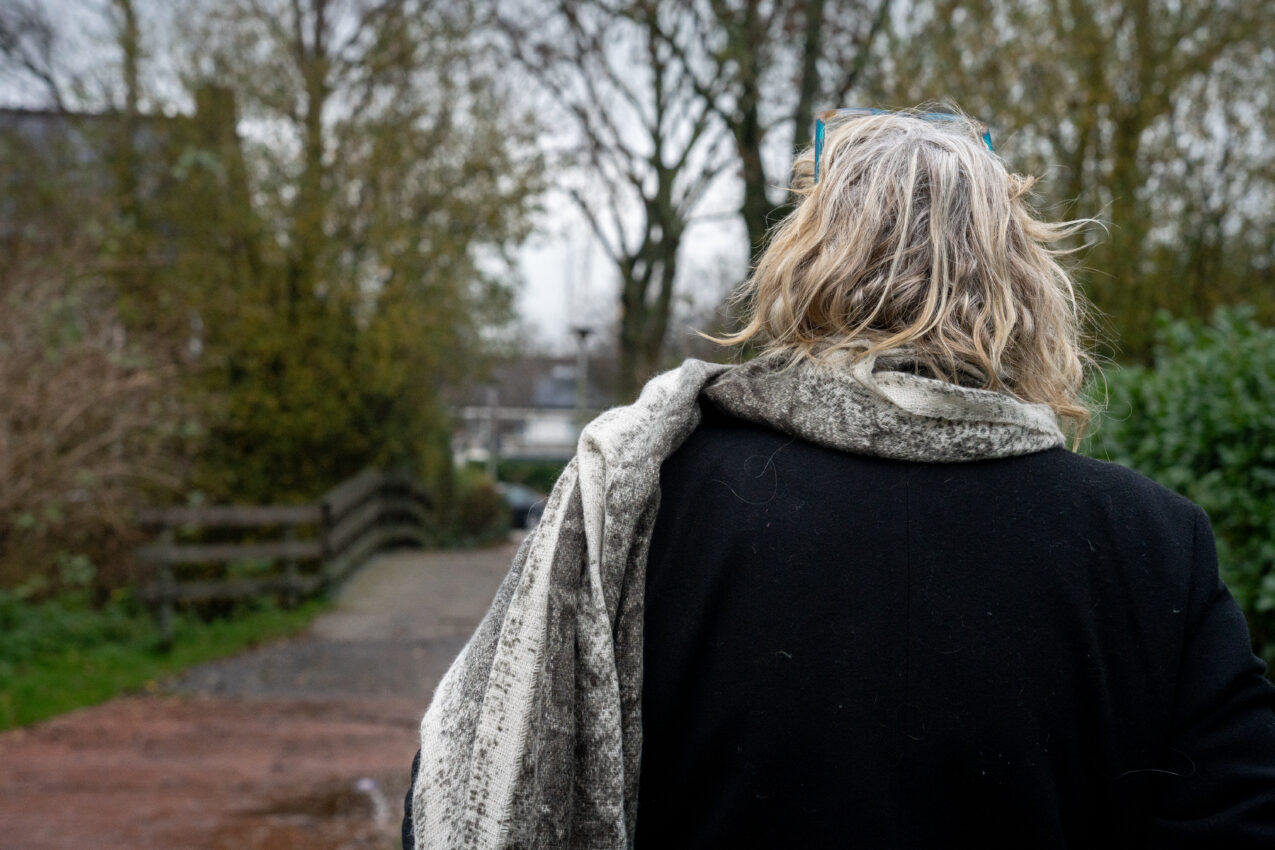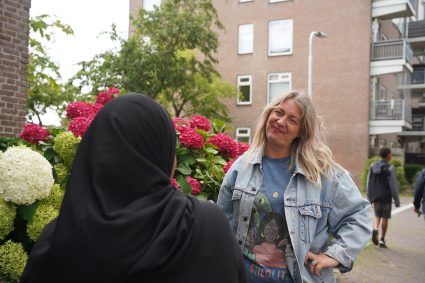Esmeralda became an aid worker unnoticed
Esmeralda is a social worker and carer. Caring for another is a thread that runs through her entire life. Her informal care story starts at a young age. When she was 10 years old, her father died. After this, she took on the care of her depressed mother. This early responsibility unwittingly shaped Esmeralda into a caregiver.
"Without realising it, I took on the caring role and became a caregiver. It was not really a conscious choice, but rather something that was very common for me," shares Esmeralda. "It was the role I knew from my childhood."
Concerns pile up
A new phase in Esmeralda's life began when her husband fell ill several years ago. Her husband already suffered from neglected diabetes. As a result, he was always in a lot of pain. On top of that, he also had to deal with pulmonary covid. As a result, he could do less and less, and more and more responsibilities fell on Esmeralda. The challenges piled up: caring for her ailing husband, looking after her mother-in-law, and balancing her work with informal care duties.
"My daughter laughed at me very hard. She said, 'Mom, you don't think I'm coming all the way from Rotterdam to clean at your place, do you?"
The realisation that she was "taken care of" and needed help came after an important lesson from her daughter. Esmeralda preferred to do everything herself, but when there was no other way, she asked her daughter, who lives in Rotterdam, for household help. Esmeralda: "My daughter laughed at me very loudly. She said: 'Mum, you don't think I'm coming all the way from Rotterdam to clean at your place, do you? That's what cleaners are for, isn't it?' When my daughter said that, it did make me think. Actually, she was quite right too. I am in the old-fashioned mode, and to me it is quite normal for your children to support you in that way. But actually, it is not natural."
Wake-up call
"I thought it was clever how my daughter expressed her boundaries, and that it is also possible to say no. I myself always say yes to everything, and only think of myself last. For me, that was really a wake-up call to raise the alarm."
This wake-up call caused Esmeralda to take the step to seek professional help for the first time: "Soon I will get a domestic worker and a gardener for the first time. This did really take a load off my shoulders. The main thing I learned from this is that it's okay to ask for help."
Esmeralda did find in her time as a carer that getting help is not always easy. Even with her experience as a caregiver, she found that it takes a lot of time and effort to figure out what you are and are not entitled to. Esmeralda: "I feel there are many more schemes for parents with sick children than someone who has to look after their partner. Maybe there are options, but where do I get the time to figure all that out too?" Esmeralda calls for more understanding and a simpler system so that people like her can find the support they need more quickly.
Support for carers by Amaryllis
Amaryllis offers help to family carers. Because even though you lovingly care for your partner, relative or friend, it can be quite tough at times. Sometimes caring for yourself falls by the wayside.
Our Mantelzorg team can help think about how things might be done differently. After all, there are various forms of support you can use as an informal carer. Support that makes it a little easier to keep up the care.



